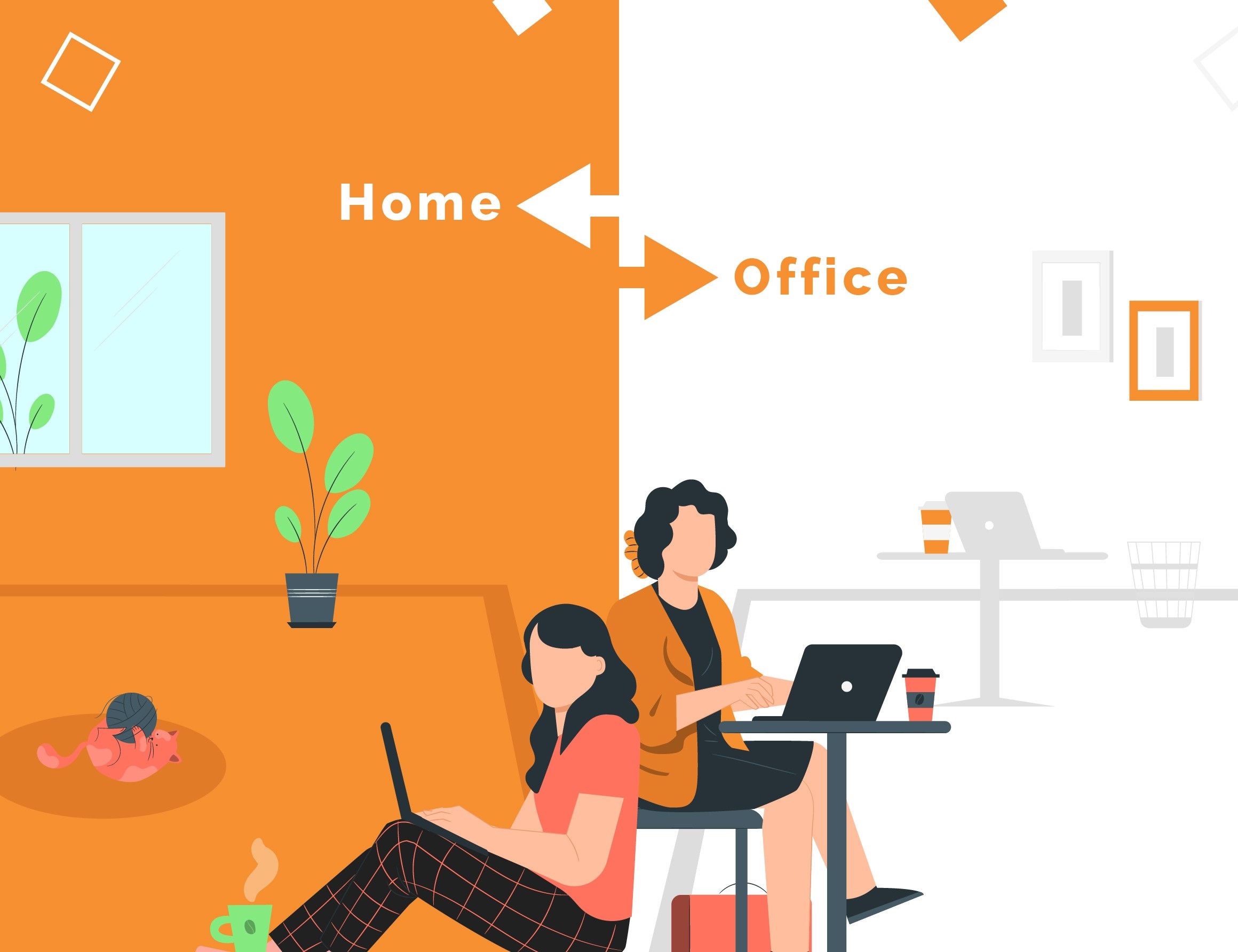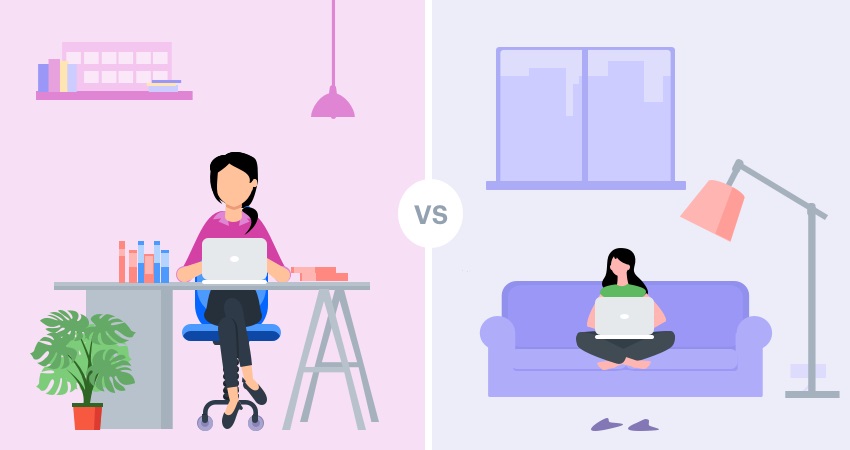Remote Work vs. Office Work: Pros and Cons
When Covid 19 hit, most companies, and organizations around the world decided to adjust to a new model of business. To protect the welfare of their people, especially for non-essential employees, they have established a work from the home set-up. Schools and other sectors that involve face-to-face communication continue in the comfort of homes. If someone asks you to choose between working from home vs office, what would you choose? If someone asks you to choose between working from home vs office, what would you choose? There are some differences between working remotely and working from home. With this kind of situation, almost all people are forced to be at home. Considering Remote Work vs Office Work, we get to maximize the use of technological advancements, such as different applications for our online meetings or classes.
Table of Contents
More eLearning software development is introduced in the market as well to provide us with better adaptation to the situation. For several months, work from home set-up has become the savior for both employees and employers to keep the business running. However, as the vaccines for Covid 19 have been rolled out, the rate of people that are infected has started to decrease. Some companies and establishments started to open their offices again. If someone asks you to choose between working from home vs office, what would you choose? There are some differences between working remotely and working from home.
Considering Differences Between Working Remotely and Working from Home, What is Better for Employees or Employers?
In this article, we will be comparing remote working and office working side by side as well as their pros and cons.

-
Financial Effect
If there is a number one factor for consideration between going back to the office or not is the financial costs. When working at the office, this entails paying for your gas and even the parking cost if you are driving. If you are commuting, you’ll probably pay for the ticket and other commuting expenses. Sometimes, along the way, you’ll most likely grab something to drink or eat before arriving at the office.
Working from home on the other hand doesn’t mean you’re safe from expenditures. Since you are at home, your electricity bill will most likely increase as well as investing in a good internet connection.
-
Comfort
After 2 years of being in a work from home set-up, one cannot deny that working from home gives a lot of comfort in terms of working. You can work, attend meetings and get all your tasks the whole day without even changing your pajamas.
Office cubicle will be noisy and distractive. Nevertheless, you can soundproof your office cubicle to reduce the noise.
Working at the office can give you comfort but in another way. For example, an office can give you comfort by having your colleagues around, or maybe a comfortable working station.
-
Productivity and Efficiency
Surprisingly, a study shows that employees that are working on-site can be more distracted every 11 minutes and it takes 25 minutes to get them back on track. This is already a big loss in terms of the productivity of employees. While employees that are working from home have increased their productivity. It is one of the differences between remote work and office work.
Just for example, according to a Stanford study, call center agents that are working from have increased their productivity by 13%. More research also proves that employees who are working in the comfort of their homes spend more hours working than those who are working on site.
Unlike regular employees, managers or leaders of different companies and organizations had to face a great challenge in adapting to the work from the home set-up. Ensuring that your subordinates will work efficiently is one of those challenges. In addition, employees can be tempted to have more than just one job, since no one can check this kind of thing. Working on-site allows managers and leaders to easily check on the work and progress of each employee.
In this situation trust me will be built among the team. In these kinds of uncertainties, good leadership can still bring out the best in each employee and make sure that tasks are being worked on efficiently.

-
Teamwork
Many employees feel the power of teamwork when they are face to face communicating with their co-workers. More brainstorming and exchanging of ideas are created when working onsite. A team becomes stronger and more open.
Working from home, however, is believed to deliver a more dynamic kind of teamwork. Also, it gives individuals the opportunity to enhance and develop the skills and knowledge they have right now.
In conclusion: Remote Work vs Office Work
There’ll always be differences between working remotely and working on site. However, the key factors to avoid employees being burned out still lie in the hands of the management. Strong leadership, supportive, healthy and happy culture will ensure the productivity and loyalty of employees no matter where they are working.

• Work-Life Balance During Remote Work vs Office Work: Remote work supports greater work-life balance in some areas, such as allowing employees to feel more at ease taking breaks. In other ways, remote employment blurs the lines between business and personal life.
• Interruptions And Diversions: Regardless of the work environment, interruptions and distractions are unavoidable; the difference is in the type of interruptions and distractions. Employees can distract at home by a puppy or the sound of their neighbor mowing the grass.
• Mental Health: Remote work may help employees’ mental health in a variety of ways, including offering them greater freedom. Remote employment, on the other hand, can be detrimental to mental health in some respects, such as isolating individuals.

Magdalena Polka is a Business Solution Designer and an Information Technology / Project Management consultant and author with over 15 years of software development, management and project management experience.










